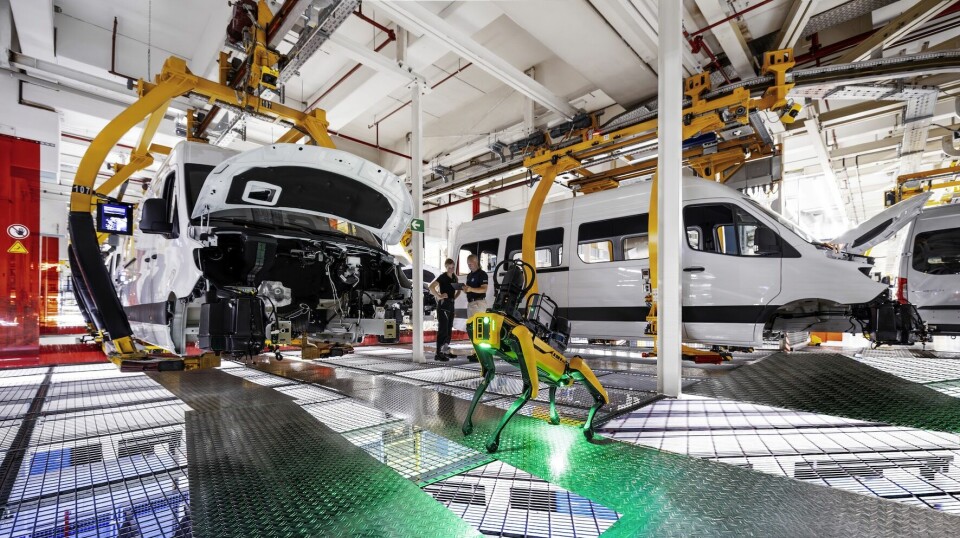A new generation of automation at Mercedes-Benz’s Düsseldorf plant

Blending AI and automation, Mercedes-Benz's Düsseldorf van plant is taking a major step in automation with the deployment of a four-legged robotic assistant – Aris
Mercedes-Benz is deploying autonomous robotic systems to support its digitalisation programme. Part of this shift is Aris, a ‘robo-dog’ now patrolling the Mercedes-Benz Vans plant in Düsseldorf.
The robo-dog project fits into Mercedes-Benz’s long-term digital transformation agenda, which focuses on integrating AI, IoT, and robotics to make production more agile, efficient, and resilient
Aris supports predictive maintenance by autonomously detecting compressed air leaks, which can otherwise go unnoticed while quietly driving up energy consumption. By identifying these leaks early, Aris is helping reduce energy loss by up to 60%, leading to annual savings in the six-digit euro range. Equipped with acoustic imaging and AI software, the robot not only hears what human ears might miss but also processes and reports data in real time for immediate response.
The initiative isn’t an isolated project – it’s part of Mercedes-Benz's wider strategy to digitise its manufacturing operations and unlock new efficiencies. This step reinforces the company’s mission to create intelligent, automated production ecosystems across its global network.
The robo-dog project fits into Mercedes-Benz’s long-term digital transformation agenda, which focuses on integrating AI, IoT, and robotics to make production more agile, efficient, and resilient. This aligns with wider efforts at other plants, such as Factory 56 in Sindelfingen – a benchmark for digitalised, CO₂-neutral car manufacturing.
Mercedes-Benz is moving beyond mere automation towards a network of interconnected smart factories. Aris, for example, isn’t working in isolation; it’s designed to operate in tandem with drones and other automated systems. These tools are connected to cloud-based platforms, enabling communication between devices – and eventually, across plants. This interconnectivity opens the door to real-time performance analytics, predictive servicing, and cross-site coordination.
The Düsseldorf plant is the largest Mercedes-Benz Vans production site, employing 5,500 people across a 325,000 sq. m space. It produces the Sprinter and eSprinter models and is a key player in the brand’s commercial EV push.
In addition to Aris, a drone is being deployed to take over routine tasks like counting empty containers – a process currently requiring significant human time and prone to error. With AI-driven recognition of dimensions and topology, the drone automates this task, freeing up staff for more skilled roles and improving inventory accuracy.
The future holds even more potential uses for Aris. With the ability to climb stairs and navigate autonomously, Aris could soon be inspecting escape routes, monitoring plant safety, or even building a digital twin of the entire facility.
Meanwhile, Mercedes-Benz’s plan to create a network of smart devices that can operate across different factories reflects its broader ambitions for a digitally unified production system.




